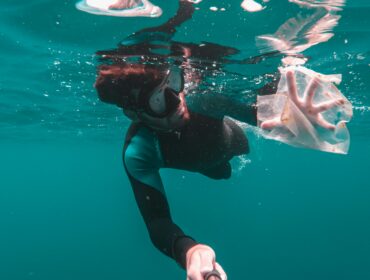When people think of coral reefs, they often picture multi-colored, unusually shaped corals and vibrant fish of all shapes, colors, and sizes. Many people are not even aware that corals are animals, not plants, and that their importance to life on land goes far beyond the aesthetic. People of all nationalities and livelihoods rely on reefs for a variety of reasons, but most people do not understand the huge and important role reefs play in our survival, especially in indirect ways. Unfortunately, this often leads to the careless destruction of reefs, the consequences of which most certainly have a lasting impact on life on land.
One of the most important services coral reefs provide is being natural barriers between the great force of the sea and land. This is why many reefs are referred to as barrier reefs, like Australia’s massive Great Barrier Reef. These reefs, which can be both wide and tall, act as a buffer against waves by slowing wave energy and diminishing its strength. This protects shorelines and helps to slow erosion, which means that many people around the world can safely live on islands or along coastlines. Although even a coral reef can’t completely stand up to large storms or waves, they do aid substantially in cushioning the land, protecting both lives and property.
Coral reefs are also vital to life on land because of the absolutely astounding variety of life they support. While some of this life will never play a direct role in life on land, other types of marine life found in reefs are essential to human existence and livelihoods. Many different people around the world make their living by collecting food, such as fish, shrimp and mollusks, from reefs. Although unsafe practices of collection and fishing can severely harm reefs, responsible practices can benefit not only human life, but reef life as well, by maintaining a balance within the ecosystem.
The ocean’s coral reefs account for a large portion of tourism dollars for many nations worldwide. Many countries rely heavily on tourists who have come from all over the globe to snorkel or dive at a reef. When reefs are lost, there are thousands of jobs and millions of dollars that are washed away with them. Without reef tourism, some nations would not have enough resources to feed their own people, resulting directly in the loss of human life.
And one of the most exciting ways in which coral reefs are vital to life on land lies in the potential for improved health and medicinal cures that are derived from a reef’s many different organisms. It is believed that the huge array of marine life within a reef may hold the key to different medications. Scientists and doctors are currently shifting their attention to studying reefs and the creatures within them, hoping that the seemingly incurable diseases that plague the human race can be reversed by looking for clues in the ocean, from which some believe all life on this planet originated.
Indeed, coral reefs are vastly important to all those who live on land. But equally important are we to corals, to ensure that they are protected and encouraged to flourish so that all may benefit from our incredible symbiotic relationship.




